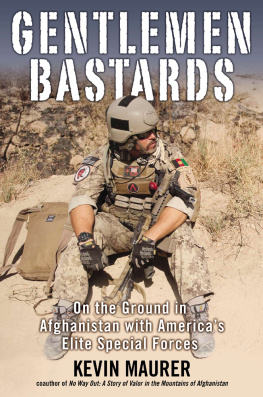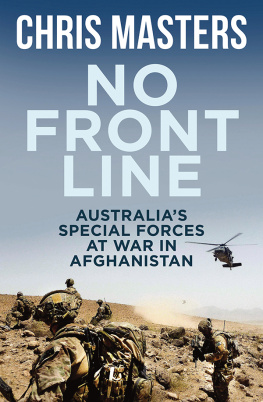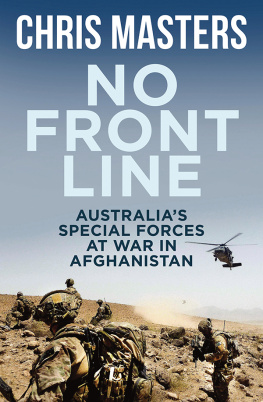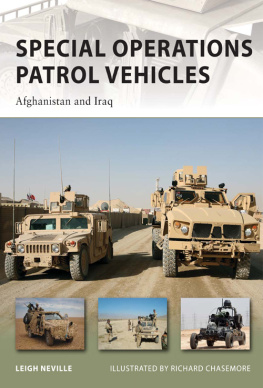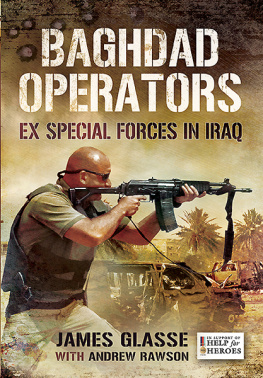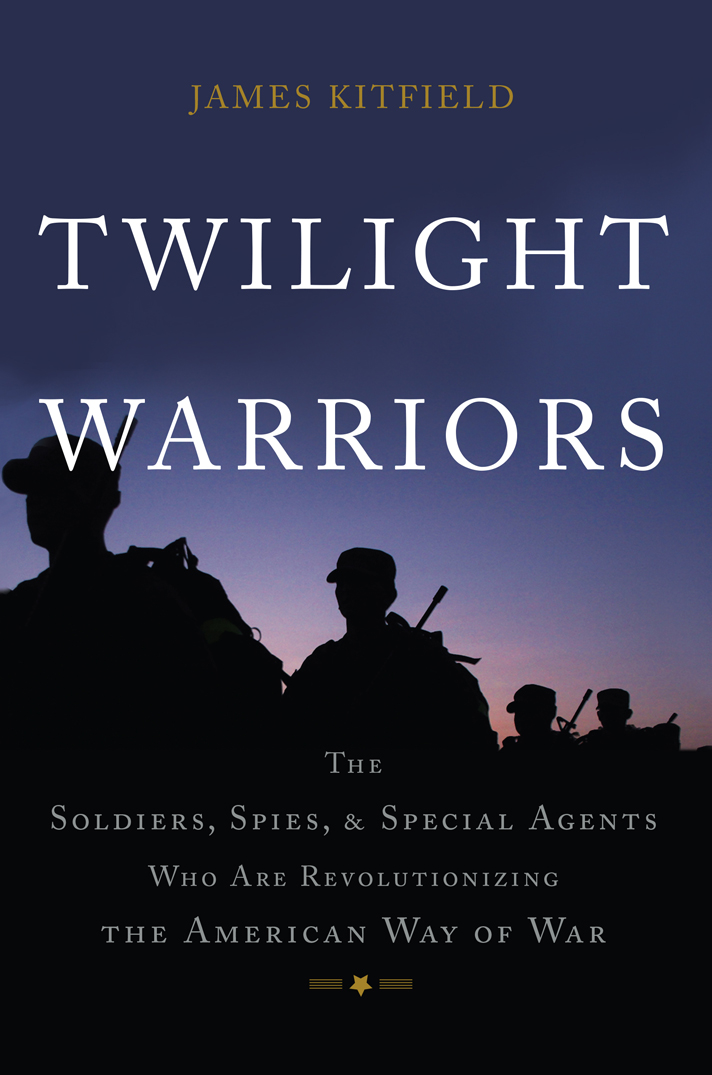Praise for
Twilight Warriors
In his book Prodigal Soldiers, James Kitfield masterfully told the tale of how the post-Vietnam generation of officers rebuilt the US military and marched to victory in the Persian Gulf War. Now with the insightful Twilight Warriors, he tells the story of the next generation of American warriors as they confront the challenges of the twenty-first century, battling ISIS, Al Qaeda, the Taliban and other shadowy groups that are determined to take the fight to our own shores, and pose the deadliest threat to the civilized world.
MARK THOMPSON, TIME Magazine
ALSO BY JAMES KITFIELD
War & Destiny: How the Bush Revolution in Foreign and Military Affairs Redefined American Power
Prodigal Soldiers: How the Generation of Officers Born of Vietnam Revolutionized the American Style of War

Copyright 2016 by James Kitfield
Published by Basic Books, an imprint of Perseus Books, a division of PBG Publishing, LLC, a subsidiary of Hachette Book Group, Inc.
All rights reserved. Printed in the United States of America. No part of this book may be reproduced in any manner whatsoever without written permission except in the case of brief quotations embodied in critical articles and reviews. For information, contact Basic Books, 250 West 57th Street, New York, NY 10107.
Books published by Basic Books are available at special discounts for bulk purchases in the United States by corporations, institutions, and other organizations. For more information, please contact the Special Markets Department at Perseus Books, 2300 Chestnut Street, Suite 200, Philadelphia, PA 19103, or call (800) 810-4145, ext. 5000, or e-mail .
Designed by Linda Mark
Library of Congress Cataloging-in-Publication Data
Names: Kitfield, James, author.
Title: Twilight warriors : the soldiers, spies, and special agents who are revolutionizing the American way of war / James Kitfield.
Other titles: Soldiers, spies, and special agents who are revolutionizing the American way of war
Description: New York : Basic Books, [2016] | Includes bibliographical references and index.
Identifiers: LCCN 2016019611 | ISBN 9780465096541 (eBook)
Subjects: LCSH: Strategic cultureUnited States. | United StatesHistory, Military21st century. | Intelligence service--United States--History21st century. | Terrorism PreventionUnited States. | Special operations (Military science)--United States History21st century. | Interagency coordination--United States. | United States Armed ForcesOfficers. | United States. Federal Bureau of InvestigationOfficials and employees. | National security--United States. | Military art and scienceUnited States--History--21st century.
Classification: LCC UA23 .K5263 2016 | DDC 355/.033573--dc23 LC record available at https://lccn.loc.gov/2016019611
10 9 8 7 6 5 4 3 2 1
To Bobbie and David Kitfield, Sr., for teaching me to admire the warrior spirit; to Ruste Murray Kitfield for the love of literature and my Irish half; and to Lydia, Charlie and Travis for making me whole.
Table of Contents
Guide
Contents



This is another type of war, new in its intensity, ancient in its originwar by guerrillas, subversives, insurgents, assassins, war by ambush instead of by combat; by infiltration, instead of aggression, seeking victory by eroding and exhausting the enemy instead of engaging him.... These are the kinds of challenges that will be before us... if freedom is to be saved, [and they require] a whole new kind of strategy, a wholly different kind of force.
PRESIDENT JOHN F. KENNEDY
Speech to the West Point graduating class June 6, 1962
A N OLD F-105 FIGHTER JET CLIMBS EVER SKYWARD ON ITS PEDESTAL just inside the security gate of Joint Base Anacostia-Bolling. On August 7, 2014, the long row of flags lining the wide thoroughfare on the other side fluttered in a breeze off the nearby Potomac River. The sprawling 900-acre base is home to an alphabet soup of assorted military and intelligence units that operate around the nations capital. Satellite dishes near some of the buildings are as big around as ice-skating rinks. Yet just past a gas station and a grocery store, the streets of nearby neighborhoods are lined with tidy houses and carefully manicured lawns, seemingly a typical American suburb just coming to life on a summer morning. Only the denizens of this cloistered suburb were at war, had been for over a decade, while the nation beyond the gates of the base so clearly was not.
The gleaming metal and glass superstructure of the Defense Intelligence Agency (DIA) headquarters rises above the smaller structures on Anacostia-Bolling like an aircraft carrier at dock. Clusters of well-dressed men and women were filing into its entrance past a marble wall inscribed with the message Committed to Excellence in Defense of the Nation. The guests were handed a color program and ushered into an atrium containing hundreds of seats. The retirement ceremony of Lieutenant General Michael T. Flynn, the director of the agency, was soon to begin. The program identified the masters of ceremony as James Clapper, the nations top intelligence official and director of national intelligence; Admiral Michael Rogers, head of the surveillance behemoth the National Security Agency (NSA); and General Martin Dempsey, chairman of the Joint Chiefs of Staff (JCS).
The mandarins of the vast US national security apparatus were in attendance, its top soldiers, spies, and federal agents gathered under one roof to send one of their own into retirement, a man who without fear of contradiction would be extolled during the ceremony as the best intelligence officer of the past twenty years. Many of them had come of age together as field commanders in Americas post-9/11 wars, and had risen to the top of their various agencies and professions as secret sharers of the truths revealed there. They had all lost friends and innocence in roughly equal measure, and had sworn never again to let the magnetic pull of Washington bureaucracies or careerism divide them to the benefit of a relentless enemy. Given the nature of the intelligence business that united them, quite a few also knew that Mike Flynns premature retirement wasnt entirely of his own choosing, and that his cogent and frank intelligence assessments hadnt always been warmly received down certain corridors of power in Washington. In that sense there was an undercurrent of tension in the festivities not evident to the casual observer.
As the longtime national security correspondent for National Journal magazine, I was familiar with Mike Flynns backstory, and had wrangled an invitation to his retirement to look for some answers. Flynn had recently granted me his final on-the-record interview before leaving office. In it, he warned that the United States was actually less safe from the threat of terrorism in 2014 than it was prior to the 9/11 attacks, even after more than a decade of war, or what the George W. Bush administration had termed a global war on terrorism. The latest and most blunt of a series of public warnings Flynn had issued over the past year, it was not embraced across the river at the White House, nor welcomed in certain offices in the Pentagon where steep budget cuts were justified. I strongly suspected this was another reason that Flynn would not serve out his full, anticipated three-year term at the helm of the Defense Intelligence Agency.



